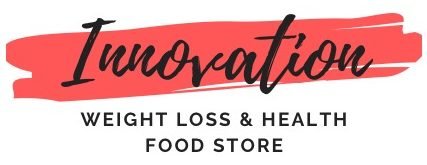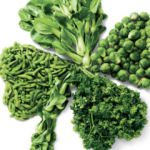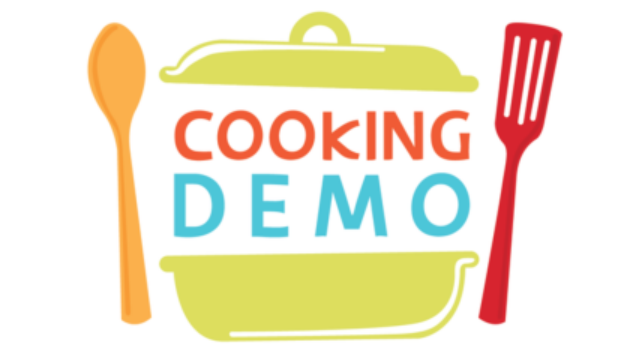Eating healthy is the key to losing weight, but when we change our diet to lose weight, we have to make sure that we are still getting all the nutrients our body needs. We are all familiar with the most well known vitamins and minerals – Vitamin C is probably the most common and easiest to incorporate. Other vitamins and most minerals are recognizable but what do they do for us and what are the best sources? A multivitamin is never a bad idea, but depending on which brand you choose or what you are specifically lacking, it might not give you everything you need. Here are some healthy weight loss foods, that include some important nutrients that women especially should make an effort to consume.
Potassium
When we think potassium, usually the first thing that comes to mind are bananas. We think that it is common and easy to consume so we might not pay enough attention to our potassium levels, but it’s worth a second thought. Potassium might not be on your radar, but in reality only 1% of women get enough potassium in their daily diets – 4,700 mg daily is the recommended amount. This can be problematic because this is a mineral that helps cut your risk of heart disease and stroke by lowering blood pressure. The good news is in addition to bananas, many fruits and vegetables such as sweet potatoes, cantaloupe and beans have around 300-400mg of potassium per serving.
Magnesium
Used for everything from mood to stronger bones, this is an essential mineral because it’s proven to help prevent heart disease by easing inflammation and improving cardiovascular function and tissue health. But just as important is the gender-specific benefits – women do amazing with magnesium because when levels are normal it can help with calming, anxiety and headaches that affect women. It can also help ease PMS symptoms.
Choline
Unlike potassium, choline is much more unknown but it offers benefits that are just as amazing and essential to our health. It is a relatively new nutrient, added to the list of required nutrients by the National Academy of Sciences (NAS) in 1998. Choline is a micronutrient, or a vitamin or mineral that is only required by the body in small amounts but is vital to development, disease prevention and overall health and wellbeing. It supports the liver’s natural detoxification process, which can help your body in so many ways, and it is also recently linked to helping reduce your risk of breast cancer. Unfortunately, most women over the age of 50 only take in half of their daily quota, which should be 425 mg. Luckily, choline can be found in many healthy foods such as eggs, shrimp, cod, Brussels sprouts, cauliflower, asparagus, spinach, and much more.
Vitamin D
Vitamin D is essential for wellbeing in two ways – it helps with immunity, bone health and blood sugar control and it also aids our mental health by helping to combat depression and insomnia. Vitamin D is incredibly important but unfortunately it is only found in a few foods. There are other ways to make sure you are getting the recommended 400IU-600IU daily, such as cod liver oil and the sun. Just be aware of the oils you choose if that is what you decide to do, because some manufacturers sell cod liver oil that is low in one vitamin, such as vitamin D, and high in other vitamins, such as vitamin E or A. Balance is always important. It is also always worth noting that sun exposure should always be monitored and not over done. Healthy foods such as salmon, tuna, milk, fortified yogurt and eggs are reliable and safe ways to get your daily dose of vitamin D.
Iron
Iron is an essential mineral that women of all ages need, from young women going through puberty to pregnant women and even through menopause. With puberty comes menstruation, which means that a young woman’s iron needs increases to make up for the blood loss and increase in blood volume. Girls 9-13 should aim for 8mg of iron a day and girls over the age of 14 should get 15mg a day. Because of menstruation, women are at the highest risk for anemia, or low iron levels, which can cause a variety of symptoms. Pregnant women should also take note, because they could need up to three times more iron during pregnancy. Women ages 15 to 50 should consume 18mg of iron daily, and then it drops to 8mg from ages 51-70+. Iron is essential for red blood cell production, oxygen transport, and energy production. Lean meats, seafood, nuts, beats, lentils, spinach, beans and some cereals are great sources of iron.
Calcium
Calcium has always been known to be good for bone health, especially for women. As women age, we are prone to bone loss, so it’s good to start building a strong skeleton at a young age. Girls between the age of 9 and 18 need 1,300mg of calcium daily. Adults (ages 19-50) should aim to get 1,000mg and older women over the age of 50 should get 1,200mg. Calcium also helps with muscle and nerve function, and also helps with our pH balance in the blood. One common misconception is that calcium only comes from dairy. Though it is estimated that 72% of the calcium we consume is from dairy products like milk, yogurt and cheese, there are other excellent healthy sources such as tofu, spinach, collard greens and sesame seeds.
All women can eat healthy and clean foods and give their bodies the nutrients they need. Keep these tips in mind this month and beyond.
~Love to live healthy with Josephine Fitzpatrick
Innovation Weight Loss and Fitness
8031 Jericho Tpke Woodbury, NY 11797
469 7th Ave Manhattan, NY 10018




